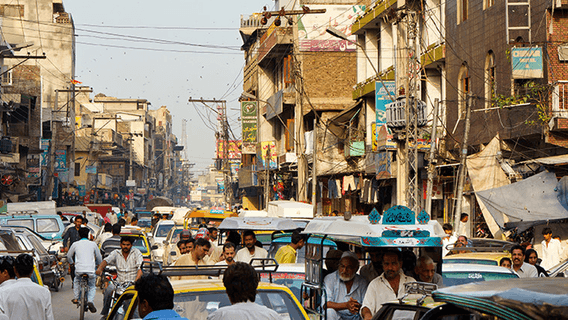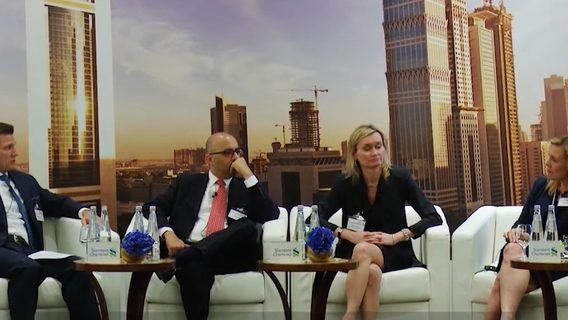-
Fighting financial crime
Our response
We’re countering fraud threats wherever we operate with training, technology and robust controls.
In recent years, we’ve invested in new anti-fraud systems and processes, in training for our frontline and compliance staff, and in our people. But we know our need for innovation doesn’t stop there.
New machine learning technologies can crunch vast quantities of data quickly, enhancing our criminal surveillance tools and better enabling us to investigate potentially suspicious activities.
And as technology gives criminals a growing arsenal of digital tools to generate and conceal illicit funds, we’re responding by bringing together our specialist teams across cyber and financial crime. This is spearheaded in the US by our integrated ‘CyFi’ Intelligence unit.
“We want to be the best international bank, and we recognise we cannot be that bank without being a leader in fighting financial crime. It’s not one or the other. And a core part of getting that right is developing controls that take into account the risks that we face as a bank around the world.”
—David Howes, Group Head, Compliance, Financial Crime & Conduct Risk
A joined-up approach
Beyond our own diligent monitoring and technological controls, we work closely with our people, external partners and industry peers to help make the wider financial system more secure.
At Standard Chartered we have the privilege, opportunity and responsibility to do the right thing in the markets in which we operate. Given the important role the financial system plays in the lives of our customers, and the development of economies and societies around the world, the conduct of the banking industry matters.
“Ensuring we live by the high standards we set for ourselves is not only the right thing to do, but is an essential part of how we do business. Everyone at the Bank has a meaningful contribution to make in the fight against financial crime.”
—Tanuj Kapilashrami, Chief Strategy & Talent Officer
A key component of fighting financial crime is making sure that we are equipped to identify and respond to the risks arising out of the work we do. That is why we are committed to helping every member of our staff to understand how conduct, including preventing and detecting fraud, is integral to our day-to-day work.
The Code of Conduct and Ethics helps all of us to understand the standards of behaviour we should demonstrate in our day-to-day work, supported by tailored campaigns:
- It Matters is an internal education program that uses real examples and dilemmas from our businesses to help our people make better conduct decisions.
- Speaking Up encourages staff to speak frankly, escalate problems and be courageous. We provide a secure, independent and confidential channel to support this.
The Whole Story
Our multi-year campaign – The Whole Story – continues to support staff, helping them understand with real-life examples and showing them the human cost of financial crime. The Whole Story goes beyond rules and regulations and demonstrates the real and positive difference our staff can make.

A silent crime
Human trafficking is a silent crime. Money laundering is its silent partner.

Real-life examples
Our aim is to turn all our people into financial crime fighters. Discover one story of how they fought back.
We’re working with regulators, law enforcement, civil society and other global banks to forge new models for combating financial crime, including fighting fraud.
By bringing together banks and governments, and breaking down traditional silos, we can improve the effectiveness of existing frameworks and create more actionable intelligence.
Our ‘de-risking through education’ strategy aims to manage the financial crime risk in our correspondent banking portfolio, support growth in emerging markets and promote financial inclusion. As part of this initiative, we partner with our respondent banks who are looking to improve their financial crime controls, and share our tools and experience to help them build robust controls for managing financial crime risk, including the risk of fraud.
This is done through a series of events called ‘Correspondent Banking Academies’, where we educate our clients on international best practices in financial crime compliance as well as giving clients access to the eLearning materials we use at Standard Chartered.
“By sticking with our local correspondent banking customers we can safeguard their access to the financial system, support our commercial footprint and build strong relationships with clients. We can protect and enhance financial inclusion around the world by working with local partners and bringing them into our risk framework.”
—Heidi Toribio, Chief Operating Officer, Corporate & Investment Banking Client Coverage

A story of success
Our transaction surveillance system flagged a number of SWIFT payments to one of our clients in Pakistan, each of which had been credited to his local currency account and then immediately withdrawn as cash.
Despite our records showing that he was a jeweller, we discovered that the funds were received from a hospital abroad as commission payments for liver transplants. When an analyst followed up, this client told him that he was a doctor using his account for patient remittances, but couldn’t produce any documentary evidence backing this up.
Our analyst then escalated the case internally and disclosed it to Pakistan’s Financial Monitoring Unit, raising his suspicion that the remittances were commission payments for illegal human organ transplants. As a result, the client’s account was shut down and our systems updated to prevent him from returning in future.
